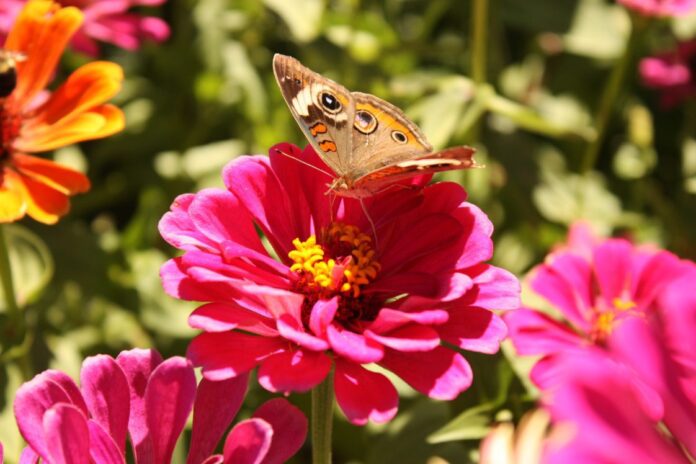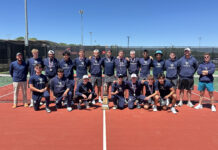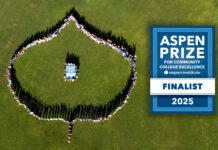AUBURN UNIVERSITY, Ala. – Summer is an active season for pollinators, but it doesn’t mean humans should count on the garden to provide everything that pollinators need to survive. It is up to gardeners to make sure these pollinators have what they need to do their jobs.
Dani Carroll, an Auburn University Extension home grounds, gardens and home pests regional agent, said there are several ways to ensure pollinators are active in a growing space. By simply observing a garden or flower bed for a short period of time, it is easy to determine whether pollinators are present or not.
Carroll said pollinators are like humans. These insects need three major things: food, water and shelter. Gardeners often forget different pollinators are present at different times throughout the year. Also, pollinators do not feed on the same thing repetitively and prefer an assortment of foods. Incorporating a variety of flowers and herbs can help provide pollinators with options to keep them coming back to the garden for more.
Different types of pollinators
There are thousands of pollinators regularly contributing to garden pollination.
“Everyone is familiar with honeybees as pollinators,” Carroll said. “But, if you don’t live next door to a beekeeper, there are other native pollinators gardens can attract.”
Squash bees, sweat bees, leafcutter bees, bats and butterflies all play a small role in the fruitfulness of productive gardens. Many native bees — aside from honeybees and bumblebees — can pollinate the plants that are not self-pollinating and require assistance to bear fruit.
While there are plants that are totally dependent on pollinators, such as cucumbers of the cucurbit family, there are also self-pollinated plants, including tomatoes. Each of these benefit from pollinator activity. The buzzing vibration helps shake pollen loose from tomatoes, while the cucurbit family relies fully on the services of a pollinator to carry pollen and bear fruit.
Controlling pests
One of the larger aspects to carefully consider is pesticide use. Carroll said there are times when pesticide use can be helpful, but as most gardeners know, it can also be harmful. Monitoring your crop is an easy way to determine a good time for application. When flowers are open and pollinators are out, refrain from using pesticides. Pollinators are generally inactive at night, making it a good time to apply chemicals. There are also several easy ways to get rid of pests without using pesticides.
“Monitoring is a very effective way to determine whether to use a pesticide,” Carroll said. “If there are only two aphids, it is very likely that native beneficial insects will take care of the problem. With pests like the tomato hornworm, simply picking the worm off the plant is an easy and effective way to protect the crop.”
Late-summer care for garden pollinators
When caring for garden pollinators during the summer, Carroll said it all comes back to the necessities — food, water and shelter.
“Alabama has been known to face drier than usual weather patterns during the hot, summer months,” she said. “It is important to remember that bees need water too.”
Providing a water source is a good way to care for garden pollinators. Carroll said a bird bath or shallow pan filled with water works well.
“Add a few rocks to provide a landing pad for the bees to perch on,” she said. “Just remember to change the water a couple of times per week to prevent mosquitoes from breeding.”
More information
Find more information on gardens and garden pollinators by visiting the Alabama Cooperative Extension System website, www.aces.edu.


















